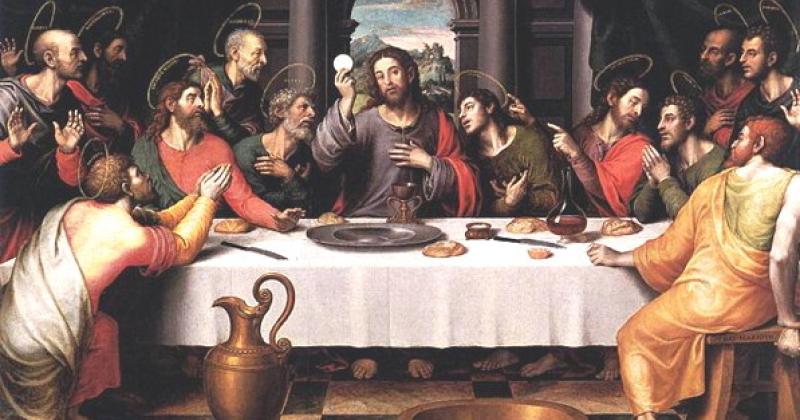Following is the meditation of Most Rev. Archbishop Pierbattista Pizzaballa, Apostolic Administrator of the Latin Patriarchate of Jerusalem, on the Solemnity of Corpus Christi, June 21, 2019:
The Gospel passage that the Liturgy places before us on this feast of Corpus Christi contains various paradoxes, as if to show us something excessive, exaggerations.
It is the passage that tells the episode of the multiplication of the loaves and fishes by Jesus according to the version of Luke (9:11b-17).
The first excess comes from the people’s hunger. The hunger and the crowd are great, seeing that the evangelist is anxious to tell us that there were about five thousand men (Lk 9:14).
The poverty of the disciples is also excessive, having nothing but five loaves and two fishes (Lk 9:13).
The conditions in which all this happens are decidedly unfavorable: it is now evening, and we are in a desert area (Lk 9:12).
What the evangelist wants to emphasize is therefore the situation of the extreme fragility, extreme need in which we find ourselves; a situation that reflects the entire reality of human life, profoundly marked by this condition of utmost precariousness.
But he also wants to underline the fact that humanly it seems there are no ways out, no solutions: there is a disproportion between the need of the crowd and real possibilities for the disciples.
The only solution, at this point, seems to be the one proposed by the disciples, which is that people go away, and that everyone seeks by himself and for himself what can satiate his hunger (Lk 9:12). It does not occur to the disciples that there may be other ways out.
Which is why the invitation of Jesus, the invitation to the people to remain, is positively paradoxical (Lk 9:13), and that the disciples themselves give food to all: an invitation humanly impossible to realize!
Instead it is precisely what happens.
First of all, Jesus asks me to divide those present into small groups: no longer therefore an anonymous crowd, but small communities, where sharing and reciprocity are easier.
And then Jesus does nothing but put into communion the little they have that everyone believed could not be enough for anything. Instead it’s enough. This is the miracle that Jesus does.
In the history of salvation, it often happens this way: it happens that what is much is not enough and more is needed, and little, on the contrary, manages to suffice for everyone.
We think of the widow of Zarephath of Sidon (1 Kings 17): the prophet Elijah is sent by a poor widow, who has almost nothing left to eat. She will support and nurture the prophet, and in doing so she will not be without anything, neither for her nor her son.
But let us think of Jesus himself: He does not save us with powerful and rich means, but, on the contrary, with his becoming poor and last, one of us. As St. Paul says, “Jesus Christ, as a rich man, became poor for you, so that you might become rich through his poverty” (2 Cor 8:9).
We are used to thinking that salvation leads us out of a situation of precariousness and poverty; on the contrary, salvation is such when it brings us inside, it makes us live our poverty, it makes us live it as a richness, as a possibility of sharing and of communion, of entrustment, of gift.
God never saves with wealth: all could pull this off. God saves by poverty, because it is in poverty that true wealth shines, not given by things, by means, by possibilities, but by the mutual gift of oneself.
The passage ends with a final excessive element: it is a question of what remains, what succeeds in filling as twelve baskets (Lk 9:17).
There, where we enrich each other with all the little we have, then we experience being truly rich, having plenty, having more than we dared hope for.
